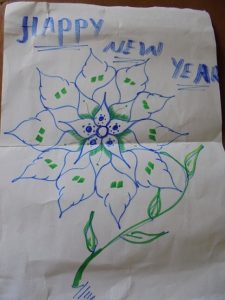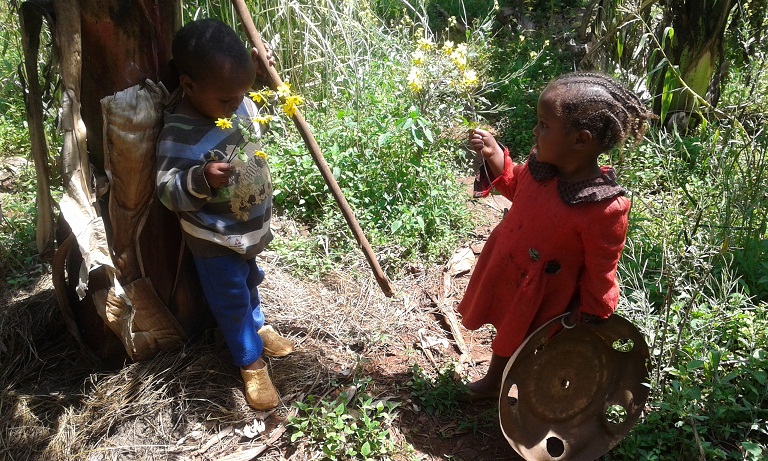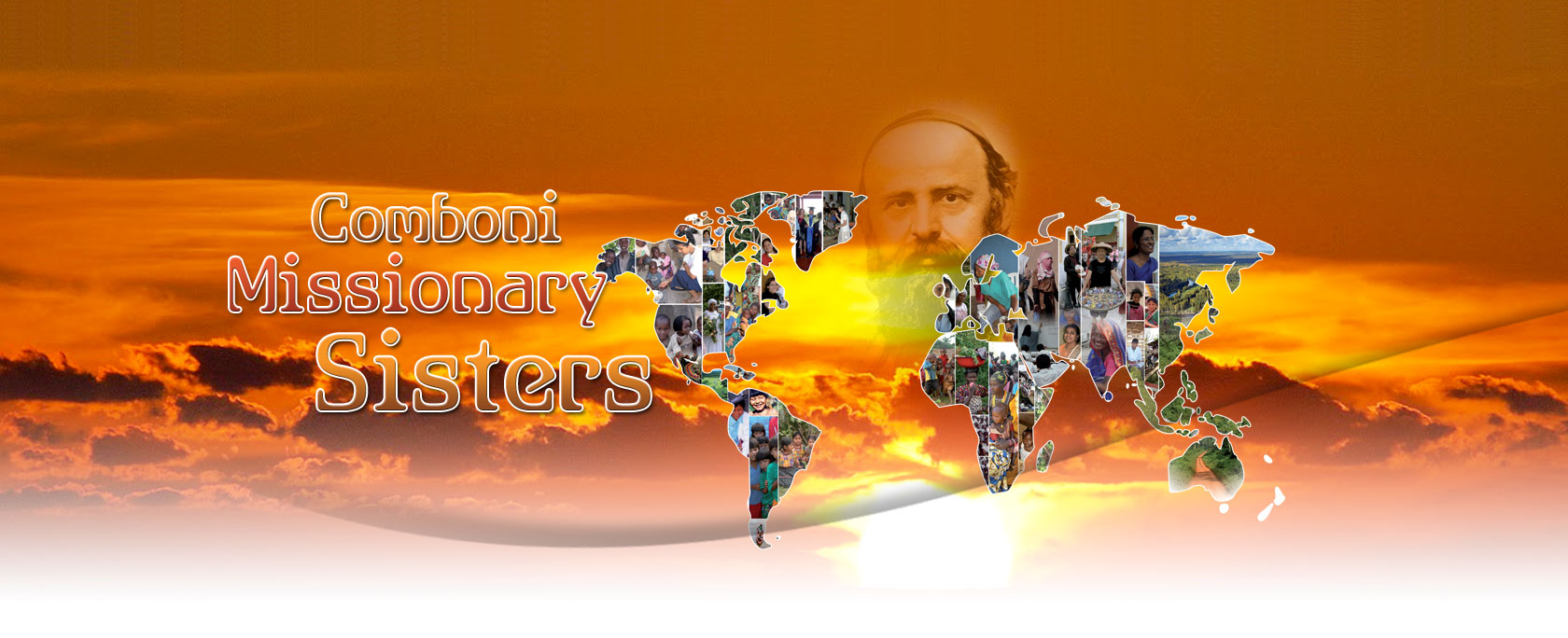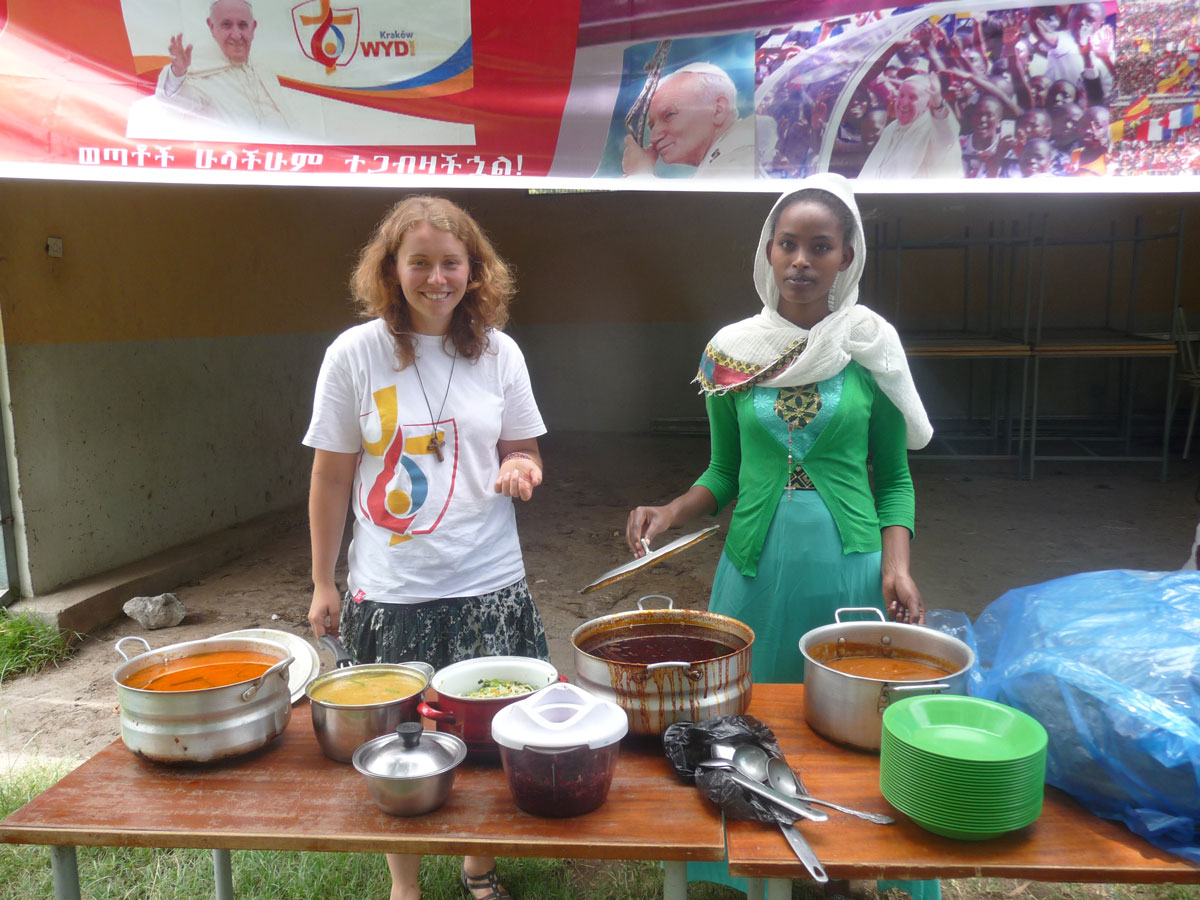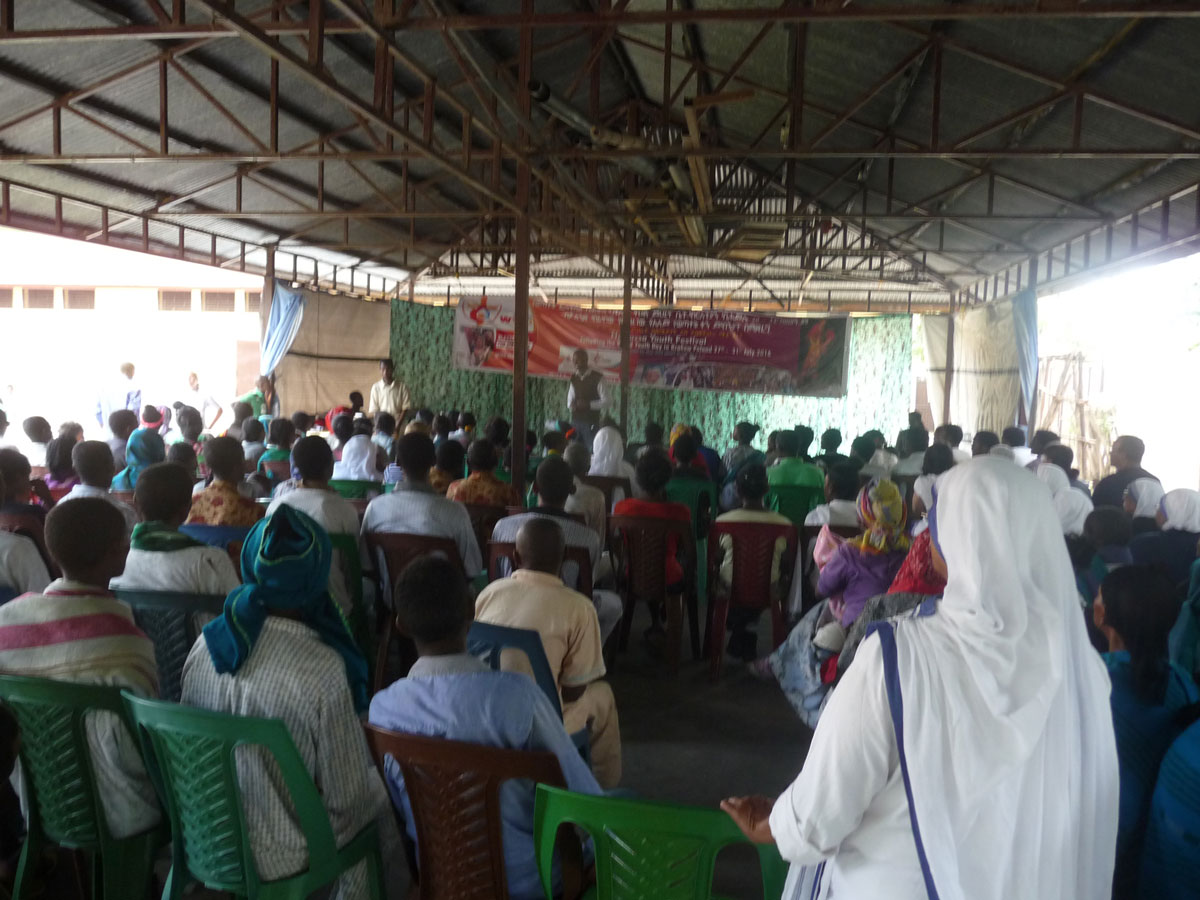For several days in the street everywhere you could see people with chickens! Walking, riding on motorcycles, in bajajs, mini-busses … Everywhere! And also topic about the price of chicken he was one of the most common ones (because the price is not small, 250 birr, which is about 10 euro!). All these things are the sign of the approaching New Year, which we celebrate today! Ethiopia uses the Julian calendar, according to which today began year 2009. For me, it is still quite strange, once the celebration of the New Year in mid-September, secondly that it is year 2009, and thirdly that the year has 13 months … 🙂 However, here it is the most natural thing and great joy! All the people are very grateful to God that he brought them through another year and they ask to bless them for the new one. Celebrating this day is completely different from ours in Europe; there are no big New Year’s Eve parties. However, in the New Year’s Day, in the morning the girls walk on the streets and visit homes singing a special song – blessing for the New Year. Then give flowers – September in Ethiopia is the time when bloom very typical for this time yellow flowers, beautiful! However, nowadays the most commonly they give a flower drawn on paper. They also expect a small gift. It is also a family holiday – all people prepare doro wat (a special dish from the chicken, mentioned above), and together with the loved ones gather for a lunch. This is very joyful time 🙂
So, Happy New Year!
And let’s pray that God will bless the Ethiopians and give them peace.
Magda Plekan, CLM in Awassa (Ethiopia)




